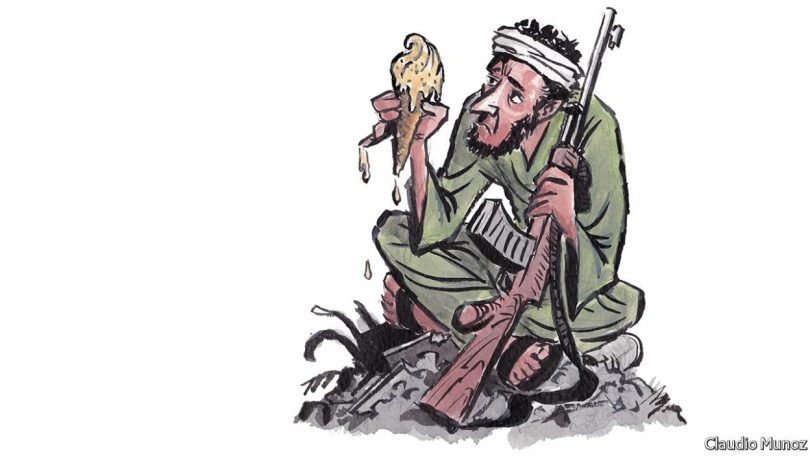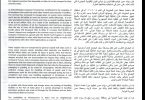Baskin-Robbins delivers praline ices behind the battle lines
Jun 29th 2017/ ADEN
CHOLERA spreads, with over 200,000 new cases reported. Malnutrition is rife. Government salaries were last paid a year ago. But the customers keep coming at the local franchise of Baskin-Robbins, an American ice cream brand, in Sana’a, Yemen’s rebel-held capital. Since the war erupted, the company has added a new branch to the five it already has in the capital. “Our best-seller is pralines,” says one of the managers, who last month served more than 16,000 customers.
When Saudi Arabia and the United Arab Emirates first began bombing in March 2015, getting supplies quickly became a problem. The tubs are shipped from America, but bombing knocked out the refrigeration units in Aden, the southern port, and the road north was treacherous. So Baskin-Robbins rerouted their orders through Salala, a port in neighbouring Oman. Each month a freezer truck brings its fresh stock of 20 flavours 1,500km (900 miles) through the desert. The journey is expensive and tiresome but mostly safe, so long as the gunmen manning some 60 checkpoints en route are kept happy. For the right fee, they will also refrain from inspections, which in the heat might make the ice cream melt.
Import duties have put up costs. The company has to pay them twice: to the internationally-recognised government at the Omani crossing; and to the rebels at a new office on the mountainous approach roads to Sana’a. But such is the demand in a country where temperatures can exceed 50ºC that the franchise still turns a profit. Air strikes can interrupt business, sending Yemenis rushing home, but they have grown less common. Of eight outlets in the rebel-held north, only one has had to close, because it lies close to a military base.
The south of Yemen has been more problematic. Artillery fire from the rebels besieging the government-held city of Taiz, 300km south of Sana’a, has destroyed that city’s sole Baskin-Robbins outlet. And Aden’s three ice-cream parlours were looted or bombed when rebels stormed the coastal city when the war began. Eventually, though, one was rebuilt, and a deal was reached to allow the precious tubs to cross enemy lines. “Business is business and fighting is fighting,” explains a Yemeni magnate. But when war only boosts the warlords’ opportunities for extortion, why should they ever stop?
This article appeared in the Middle East and Africa section of the print edition under the headline “Pralines behind the battle lines… source the economist.http://www.economist.com/news/middle-east-and-africa/21724387-baskin-robbins-delivers-praline-ices-behind-battle-lines-how-war-torn-yemen








